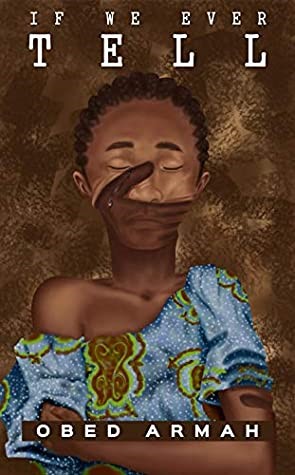This week Shelter S. Akator gets the space again to share his thoughts on a book published by a young Ghanaian author. It is our goal to introduce more Ghanaian books to you through this medium and with our reviews help to improve the quality to books Ghana is sharing with the world. One thing I like about Shelter’s reviews are that they are honest to a fault and this is good for the authors whose books we review to help them improve. If you know Obed Armah, take a picture of this page and share with him.
I hope you enjoy the read.
***
Title: If We Ever Tell
Author: Obed Armah
Year of Publication: 2019
Number of pages: 562
Publisher: Fourth Estate
Reviewer: Shelter S. Akator
In Obed Armah’s second self-published book, there is a tale of parental neglect and sexual abuse in an enabling societal structure to be told. Many of the norms of the quintessential lower-middle-income Ghanaian upbringing are portrayed in the most extreme light, leaving a bad taste in one’s mouth at the many inadequacies of the Ghanaian child’s life.
The curtains open on a scene of Jane, a Junior High School student, being prepared for an abortion by her billionaire lawyer stepdad, Randy. It becomes clear that he raped her and wants to conceal the evidence of the incestuous act by terminating the pregnancy. Not satisfied, he goes on to force her into a birth control option, then consequently makes her his sex slave for the entirety of the story. Things get to a head when Jane’s biological father returns from prison to check on her on a day when Randy attempts to kill Jane and her friends Bright and Sherry who have hatched a plot to expose him.
The first chapter of this book is one of the most beautiful things I have read this year. The author employed some very artful storytelling to leave me salivating for more. But alas, momentum stalled midway, and the high standards of chapter one were never attained for me. I know now how sorely opiate withdrawal must itch
For a book of relatively modest word count, I found many themes being expansively explored. These range from teenage pregnancy to child and sexual abuse; with a light shone on the enabling tendencies of the people who cover for abusers, even to the many flaws inherent in the rigid educational process in Ghana.
I thought the author may have overdone the portrayal of Jane’s plight, however, and it irked me to no small extent that despite the many opportunities for Jane to receive help. For instance, when her friends found out, or when her teachers saw red flags, when she was rushed to the hospital unconscious with visible signs of rape, or even when the neighbour kept hearing her screams at night, she kept on being raped night and day till the last chapter of the book. And why in tarnation did Jane’s supposed friends come up with the insensitive plan to allow her to go and get raped one more time when she had finally grown sense to see that her only way out was to report the abuse?
It seemed to me, that every character in the book was either too dense or too hollow-without soul, conscience, or morals. How could not one, but two members of the Hippocratic cult of white overcoats, collude and connive to cover up such barbarism? And what about Jane, if speaking up about her ordeal was too scary, why not run away from the monster? He showered her with enough money to try to disappear feasible at least, especially when she had an “Uncle Kissim” trying his utmost to look out for her.
I think the author did some good work to get me so frustrated at my helplessness to make Jane see relief sooner.
I loved the character of Bright. This is not because he was perfect, far from it, but a man with the cold calmness to nonchalantly munch chips whilst being charged down by a paedophile intent on raping a girl he cares for is to be admired.
Out of 10, I would rate this book a 5, and I’d recommend it to anyone who wants to look into the many things wrong with the typical Ghanaian child’s upbringing, though I must add that the author probably exaggerated a lot to drive home his agenda. Also, anyone who wants their girl child to see the folly of keeping quiet about abuse should let them have a gist of this book.
***
Thank you for continuously keeping faith with this column. If you have a book you would like us to review, please get in touch via the email address provided below. Until next week, it can only get bette and we can only get better.
Elikem M. Aflakpui
[email protected]










